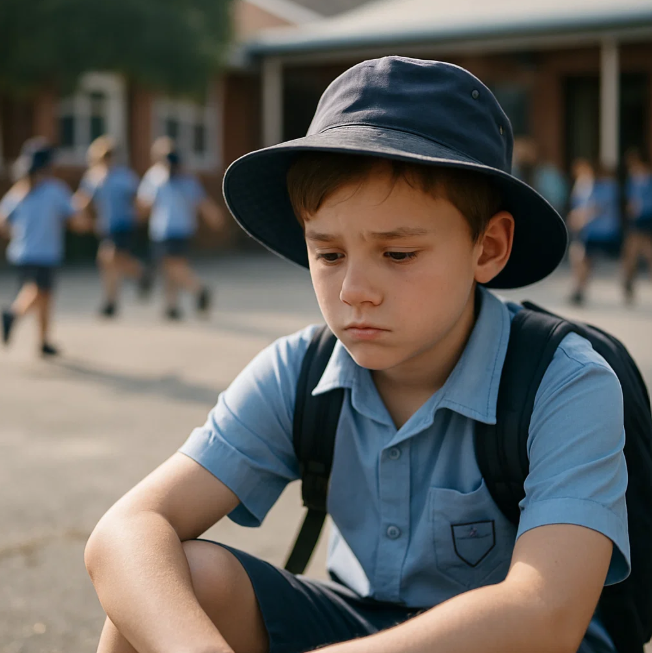
For some young people, school is an exciting, social experience. For others, school can be a lonely, and even scary, place.
According to the Australian Institute of Health and Welfare, loneliness has been on the rise among young Australians since 2008, with 22% of 18–25-year-olds reporting they feel lonely often/always and up to 91% of young South Australians saying they feel lonely often/sometimes.
A new study by researchers from Flinders University’s College of Education, Psychology and Social Work has shed further light on the issue of loneliness at school, finding that schools can be emotionally isolating environments where loneliness is shaped by harmful social dynamics.
Co-designed in partnership with the South Australian Youth Forum, the research reveals that bullying and other unwanted social interactions are key contributors to feelings of loneliness in schools.
Drawing on the sociological theories of Pierre Bourdieu – a French sociologist – the study introduces the concept of “affective violence” which is emotional harm that emerges from social systems, rather than just individual behaviour.
The researchers found that schools be emotionally unsafe spaces where social hierarchies and exclusion shape how students feel and belong. Challenging traditional approaches that frame loneliness and bullying as individual problems, the study positions them within broader patterns of inequality and emotional harm that are embedded in school systems.
This shift aligns with international developments, including UNESCO’s redefinition of bullying as a systemic issue.
“One of the challenges with designing interventions in schools for loneliness is that we are just starting to understand what the unique experience of loneliness is about for young people in school,” Lead author, Dr Ben Lohmeyer from Flinders University’s College of Education, Psychology and Social Work, told The Educator.
“That said, a clear message from young people in the project is that the social and emotional environment of schools is a key contributor to loneliness.
Dr Lohmeyer said the presence of negative social connections – like bullies – in this environment is also a key contributor.
“If Principals and school leaders want to take practical steps to avoid the key contributors for loneliness, our research suggests they can begin by continuing to address the drivers of school bullying and hostile school cultures,” he said.
“There are lots of existing resources available to school leaders to address bullying, and these usually involve having clear policies to support victims of bullying when it happens, supporting initiatives that develop positive group culture, and addressing systemic and structural drivers such as inequalities and discrimination.”
The other key focus of cutting-edge loneliness research includes enabling young people’s voices and leadership, said Dr Lohmeyer.
“This project was co-designed with the South Australian Youth Forum, and their collaboration has been central to its success,” he said. “School leaders might also learn from this approach and continue to promote student voice initiatives and work collaboratively with young people to address the issue in their school.”
Dr Lohmeyer said recognising loneliness as a form of social violence opens new ways to support student wellbeing and challenges teachers and leaders to create emotionally safe and inclusive school environments.
“The research in this space is also still very new. However, there is a new report from the Groundswell Foundation providing an insight into what young people prefer in terms of social connection interventions,” he said.
“The report ranks shared interest-based groups that centre around hobbies or sport highly, and social skills-based training and online services low. This gives us some insight into what might work in schools.”
Dr Lohmeyer said his team’s research also showed that young people appreciate caring adults, such as youth workers, social workers or teachers, who offer a safe and supportive environment for feeling connected.
“But these approaches are largely individual or group-based interventions,” he noted.
“More work is needed to think about system-wide approaches, and our team is currently working on some exciting findings from this project that speak to this issue, and we are currently working on a second stage of the project looking at what can be learned from Youth Centres to tackle loneliness.”

